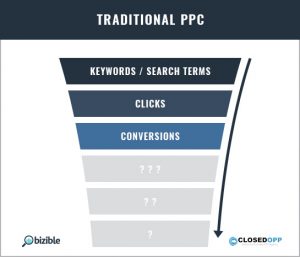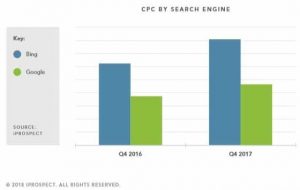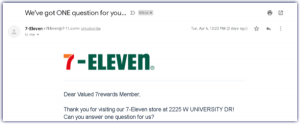Compliance is an issue that affects all enterprises. Regardless of your company’s size, failing to abide by the standards and regulations of your industry results in penalties, fines and even the closure of your business. On the other hand, those who abide by all of the established rules are likely to enjoy long-term success and career stability.
Finance
Maintaining financial compliance is critical to the profitability of any company. Not only will a lack of compliance lead to problems with payroll, workers compensation and income tax, but it can even lead to dire trouble with the I.R.S.
There are also various federal standards to abide by. The Sarbanes-Oxley Act (SOX) mandates that all companies within the public sector must abide by a stringent set of controls and policies regarding financial administration, management and reporting. Acts like SOX are meant to combat fraud on the corporate level.
Human Resources
Whether you realize it or not, your company’s human resources department is subject to numerous compliance risks. Because HR is the primary point-of-contact for any workplace issues, it’s essential that your team is up to date with the latest laws, regulations and standards that apply to their roles.
The Fair Labor Standards Act, which enforces our nation’s minimum wage, overtime eligibility and workforce age restrictions, is one of the most important articles regarding HR compliance. Familiarizing yourself with this act, as well as the supporting documentation, is the only way to ensure that you’re operating within the established guidelines.
Other applicable rules include the Family and Medical Leave Act, which provides employees with job security during extended leaves, and the Uniform Service Employment and Reemployment Rights Act. The latter protects and preserves the jobs of those assigned to military duty and forced to leave the civilian workforce. HR professionals will also need to become familiar with the Employee Retirement Security Act, as well as the Patient Protection and Affordable Care Act.
However, government-mandated acts and rules aren’t the only policies relating to the human resources department. Internal standards and regulations, such as employee benefits and workers compensation, are also managed through HR. With this in mind, it’s critical that your team is diverse, versatile and highly knowledgeable.
Quality and Customer Service
The International Organization for Standardization (ISO), based out of Switzerland, was originally founded in 1949. Since then, it’s published nearly 20,000 policies, guidelines and rules that primarily focus on quality, customer service and service continuity. Although companies are not required by law to abide by the standards established by ISO, many consumers view the ISO certification as a modern stamp of excellence. The ISO issued more than one and a half million certifications in 2015 alone.
Detailed records and ongoing quality management is required to meet ISO 9001 standards for document control and exacting procedures. Because compliance maintains so many different standards, and because some of them can be quite complicated in nature, software developers have begun to offer online software for managing ISO compliance. Look for a platform that features online accessibility, a user-friendly interface and automated report generation.
Digital Data
Given the increasing amount of cyber crime, data breaches and online identity thefts occurring on the internet, companies now have to mount substantial efforts to counteract such risks. Although you might not realize it, nearly half of all U.S. adults had their identifying information stolen by cyber criminals in 2014 alone. In addition, just over 40 percent of all U.S. companies experienced some sort of digital data breach in 2013.
For those in the healthcare sector, the Health Insurance Portability and Accountability Act, or HIPAA, provides mandatory guidelines for the storage and protection of patient data. The act was created to establish a standardized operating procedure for handling such information. Not only does this safeguard electronic health records against prying eyes, but it also ensures the proper transfer of information when visiting a specialist doctor or joining a new practice.
As more consumers are now using more than one digital platform, the Digital Advertising Alliance has teamed up with the DMA to offer tips and guidelines concerning the transparency and control of digital data that spans multiple devices, systems or platforms.
There are other standards that apply to customer service and protection, too. One such guideline, the Payment Card Industry Data Security Standard, or PCI DSS, maintains controls over the collection, processing and transmittal of customer credit card information. Regulations like this will certainly become more commonplace as the average consumer’s reliance on technology and digital data continues to increase.
Employee Health & Safety
The Occupational Safety and Health Administration (OSHA) is responsible for establishing and enforcing laws regarding employee health and safety. Known as one of the most stringent and unforgiving of all governing bodies, OSHA is capable of levying harsh fines and other penalties due to non-compliance.
As with many of the other applicable laws, guidelines and rule sets, OSHA maintains an extensive list of regulations and standards. These are meant to protect workers’ rights and provide them with the proper protection in the case of a workplace injury.
Employers are able to minimize the number of hazards present in their facility by following the suggestions offered by OSHA. Apart from enforcing the rules, OSHA also provides helpful tips and guidelines to ensure that every company within the U.S. is held to the same standards.
Federal Reporting
The U.S. government also requires companies to disseminate specific business metrics through regular reports. Areas to cover include payroll, employee benefits, employment equality and general labor relations. Employers provide the information by completing and submitting various governmental forms. Failure to comply with these laws could result in serious fines and even legal action.
How to Achieve and Maintain Compliance
The importance of organizational compliance cannot be denied. Whether it pertains to your company’s finance department, human resources, data security or workplace safety, it’s an issue too critical to ignore. Although some find it helpful to recruit the assistance of an external compliance officer, others put more of an emphasis on self-governance at the departmental level. For those who are looking for assistance, the United States government provides a comprehensive portal of resources through the U.S. Small Business Administration.
Business & Finance Articles on Business 2 Community(115)
Report Post







